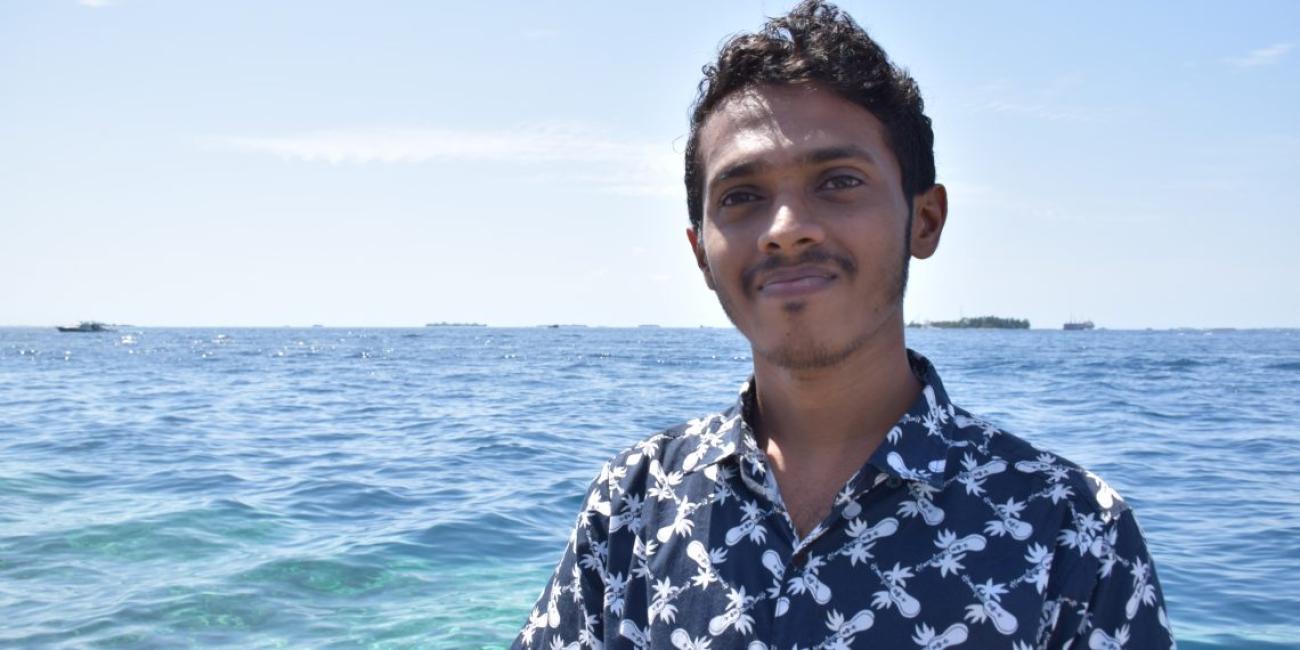Voices of Maldivian Youth: “We have education but not quality education, that's the difference"

A first-person essay from Matheen, 24, on educational opportunities in Male - and why they're so important to him.
I came to Male’ when I was 16. Educational opportunities are very limited in the island where I was born so I believed that education was more accessible here because it is free. Then I realized that we have access to education but not to quality education. This is different if you have money but I come from a class that cannot afford good quality education in Maldives.
I am doing what I can to change inequalities in accessing quality education.
I joined a lot of NGOs. I have been working with youth movements, I am trying to bring everyone together to change this reality. The first step is to come together and to acknowledge that this is a problem, an obstacle to our common future.
The Youth Union represents 17.000 young Maldivians. I want to allow people like myself to have a voice. Until now, our parents, teachers and political leaders spoke on our behalf. Now is our turn to make people listen to us, our dreams and hopes about the future. There is a lot of work to be done!
We need better education, health services and housing to everyone.
Quality education and health are priority areas but both are restricted to central areas in Male’. Equally important, is housing which everyone should have access to. Right now young people are not eligible to even own land, while the generations before us had land we don’t have access to it.
If I would have stayed in my island, I would be living in a bubble with no access to the outside world, I would live a life limited to the things available on the island only. In terms of development, concrete building is all that is available, not human development.
In my home island I studied sciences but in fact I have always had more interest in arts, history, social sciences. When I moved to Male’ I realized that my dream was to help people. With that in mind, I am now studying law.
Youth needs to be part of decision making.
Youth represents the majority of Maldivian population and we need to be included in decision making processes. Until now we were just letting other people do that for us. The previous generations have had their opportunities and made their decisions towards building our nation, now it’s our turn.
This is our chance! We have been saying that youth are the leaders of tomorrow and now is the time. The time when young people should be able to make decisions. We are the leaders of today and we can start right now, at this very moment. I believe that we will move forward, we will achieve our goals regardless the obstacles that we face today.
The young people I work with are the motivation that I get to do what I do.
They inspire me to work towards our rights, and that’s about everything I have: our hopes, our dreams, our future.
--
Today’s generation of young people is absolutely massive: Some 1.8 billion people are between ages 10 and 24. Most of them live in developing countries, often comprising a huge proportion of the population. How well they navigate adolescence will determine not only the course of their own lives, but that of the world.
Yet too many youth are unable to participate fully in society. Around 175 million young people in low-income countries cannot read a full sentence. Among those aged 15-24, some 500 million live on less than $2 a day, and over 73 million are unemployed. For girls, the barriers to participation are even higher.
But when empowered and given the right opportunities, youth are effective drivers of change. UNFPA partners with young people, helping them participate in decisions affecting them, and strengthening their ability to advance human rights and development issues such as health, education and employment.

